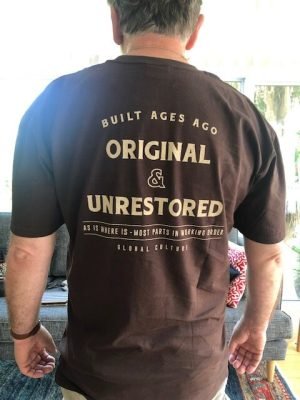The benefits of qualifying for the right to wear a T-shirt sporting the message in the picture include that one has had the opportunity to assemble an exquisite set of experiences throughout one’s career. Not all of these experiences will have been positive, hopefully many of them were. But even the less than exciting experiences one might have been exposed to, often resonate as learnings one is unlikely to forget.
I wrote “Fair and Sustainable Produce Prices” during the early Covid lockdown period in March 2020 and released it as a free e-book via our website. Little did I know then that the Commerce Commission would announce its Market Study into the New Zealand Grocery Sector eight months later in November 2020, nor had I anticipated that I would still be writing submissions on that broader topic four years later.
More recently, debates have arisen across the fresh produce industry about codes of conduct, produce pricing, reusable produce crates, supply chain logistics, and so on. Nothing wrong with that. The problems start however, when it is attempted to find solutions to the issues identified without context or reference to prior learning.
I have been intrigued in recent weeks with the number of times Fair and Sustainable Produce Prices has been accessed via our website. I am delighted, as the book is aimed to stimulate the readers’ thinking.
Finding new solutions to challenges one wishes to overcome is best achieved from the perspective of understanding how things used to work and why they could no longer work that way, together with exploring new ways of thinking about the challenges that require solving, to improve one’s chances of success.
Fair and Sustainable Produce Prices is still available as a free e-book to anyone who likes their thinking to be challenged.

